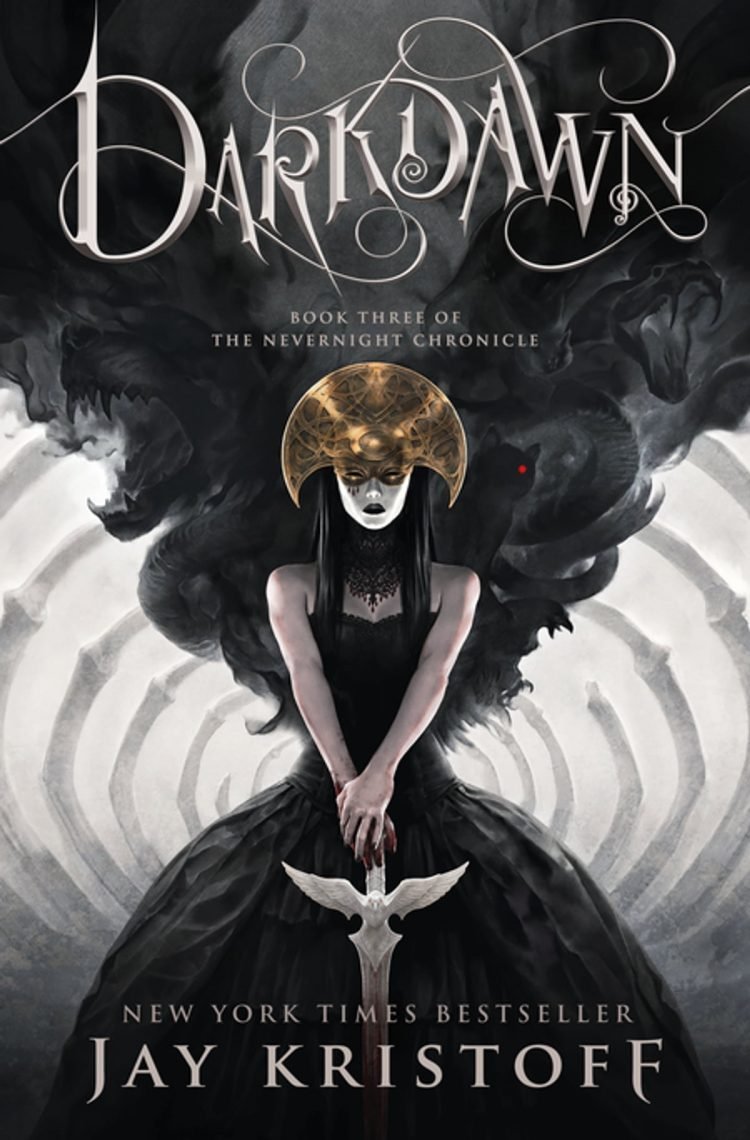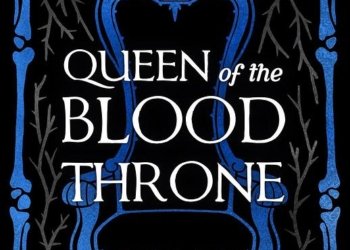No products in the cart.
Darkdawn by Jay Kristoff (The Nevernight Chronicle: Book 3)
“See my shadow changing,
Stretching up and over me.
Soften this old armor.
Hoping I can clear the way
By stepping through my shadow,
Coming out the other side.
Step into the shadow.
Forty-six and two just ahead of me.”
– Maynard James Keenan
Gather around, gentlemen, because it is time to learn Mia Corvere’s ultimate fate as the Girl with a Story to Tell, our beloved assassin, lover, gladiator, shadowmaster, and murderqueen. The final instalment of Jay Kristoff’s Nevernight Chronicle is the author’s largest and most satisfying work to yet. A beautiful, heartbreaking, and deserving ending, Darkdawn is full of big moments and larger surprises. Because of this book, I have been killed, therefore please add me to Mia’s kill list.
If you don’t want your tongue to be pinned to the ceiling, don’t use the term “hero” around Mia. Mia would not agree to it because she is unconcerned with global politics. So be it if her actions lead to a better-off ruling elite. She warned you not to interfere with her family, so if it results in the entire city of Godsgrave becoming a riddled mass of ruin at the bottom of the ocean (as stated in the prologue of Nevernight), well… There is nothing Mia won’t do for her family, and this is what motivates her to move forward in her journey. She just has that. Blood is all when everything is blood. Over the years, her family has expanded outside her bloodline into those who care for her, love her, and wish to serve and protect her. Mia struggles to decide if this is a strength or a weakness, as love can be used against her…
“She wasn’t a hero, driven by the cruelty and injustice of the Republic. She was a killer, driven by the pure and burning desire for revenge.”
This book places a strong emphasis on love, with far larger stakes than in earlier works. When combined with what Mia must decide after the stunt at the end of Venatus Magni, the unexpected revelation from Godsgrave’s last chapter creates a dramatic set of choices for Mia to make. Not to mention the fact that every assassin in the nation is attempting to assassinate her and the people she cares about, making her the John Wick of Itreya. Although chaotic, nothing is ever predictable. It’s best to just stop thinking and hold on since Kristoff always seems to zig when you think the tale is going to zag, and the last third of the novel takes so many abrupt turns. (And remember to pack tissues.)
Gentlefriends, everything is not lost, however. If the extreme brutality wasn’t once again countered with biting comedy and self-deprecation, this wouldn’t be a Nevernight Chronicle. Along with the frequently amusing encyclopaedic footnotes, Kristoff breaks the fourth wall in an unexpected and smart way as the book becomes meta. Any further explanation would reveal one of the story’s biggest surprises, but the way this is used makes a potent argument for the superiority of words to guns.
If I could make one small criticism, it would be that some metaphors were used a little too frequently and too early. The void was as long-lasting as centuries. She had never-ending black pools for eyes. His eyes were deep as centuries, infinite dark lakes. In some cases, I’m not exactly quoting verbatim, but I’m near. With repeated use, the imagery’s initial impression started to fade.
This novel differs from the first two in a number of ways that I found to be quite enjoyable. First, compared to the other two combined, Darkdawn has more POV changes. Although Mia continues to be the focus of the narrative, there are a few instances when we diverge from her. These perspectives, however brief, provided fresh angles and significant insights that we wouldn’t have acquired from Mia’s trip alone. Additionally, Kristoff keeps tinkering with the formatting of the content on the page, employing fresh techniques once more. It adds still another layer of gloss to the story’s package and is somewhat evocative of e e cummings, if cummings had a taste for smut and evisceration.
Before the narrative makes its poignancy clear, even the chapter titles are confusing. I was frequently astounded by the impact a one-word chapter title could have, yet Kristoff always pulled it off. It demonstrated to me how much thought the author put into crafting every element of this narrative, from the sophisticated storyline planning throughout three volumes to the compelling chapter titles to the way the text appears the first time Mia discovers she is capable of something incredible.
“I am a daughter of the dark between the stars. I am the thought that wakes the bastards of this world sweating in the nevernight. I am the vengeance of every orphaned daughter, every murdered mother, every bastard son. I am the war you cannot win.”
Making conclusions is difficult. How do you please a crowd after such a suspenseful buildup? This book is seriously lacking on Big Moments if that’s what you’re looking for. Kristoff has kept his best for last, delivering potent, emotive, game-changing revelations that will startle, surprise, and crush you to a pulp, whether you’re pumping your fist or definitely-in-no-way-crying-nope-not-me. All of Mia’s victories feel earned as her reputation grows, which is incredibly fulfilling. Every ounce of effort is used to pursue every triumph, no matter how tiny. You can relate to Mia. Mia hurts you, too. And with Mia, you unquestionably lose. If you’ve gotten this far, you don’t need my advice; you already plan to buy this book.
The Review
Darkdawn
9.3 Score
This will be a short review, because I can't think what to say. Darkdawn is not simply a continuation of Nevernight and Godsgrave. Those were good, but I gave them only four stars, because they weren't that different from many other books you have read: badass magic girl goes to murder school and becomes the very best.
PROS
- Soul crushing and perfect...
- Bravo!!! Amazing!!!
- Love every book in this trilogy.
- Awesome ending to the chronicle.
CONS
- Poor finish.
- A disappointing end to the series.
- Pretentious crap.
- A Struggle to finish.











